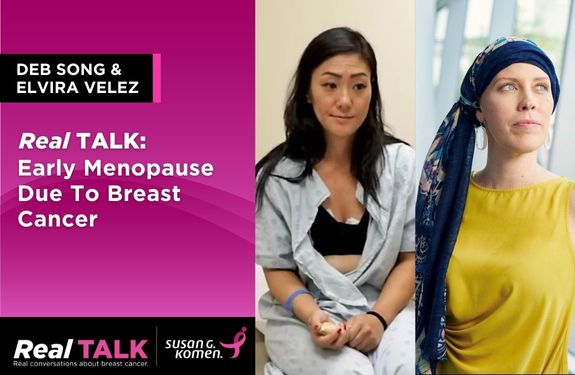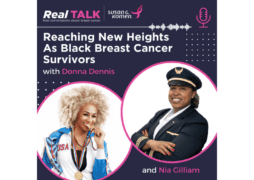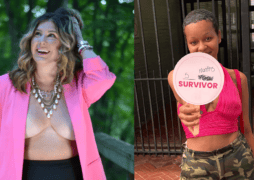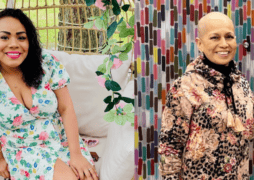Deb Song and Elvira Velez were diagnosed with breast cancer in their 30s. Deb was 39, unmarried and had not yet had children. Elvira was 35 and had not yet had children, either.
They both have a genetic mutation that puts them at high risk for breast cancer and other cancers. Elvira needed a hysterectomy as part of her treatment, putting her body into early menopause and stripping her of the ability to carry a child.
“For me, it was just like, either you have a hysterectomy or you’re basically going to die. So it’s like, okay, I made this super hard choice, but it doesn’t stop being hard. It’s still every day a discovery of who this person is, how I can go back to being a happy person that I used to be before, not the same person, but the new version of that person.”
Deb was diagnosed with uterine cancer in her 40s, a few years after completing breast cancer treatment. The treatment for her uterine cancer was a hysterectomy, which also prevents her from ever getting pregnant.
“I broke down crying,” Deb recalls. “I still do because it’s one thing when you decide to not have children because you decide for yourself. It’s another thing when the decision is taken away from you.”
Deb and Elvira agree that their lives have not been what they were expecting but they don’t focus on the “what if’s.” They only think about the “what now” and making sure the lives they were given are worth having.
Fewer than 5 percent of all breast cancers are diagnosed in women age 40 years or younger. But nearly all of these women will go into early menopause from the chemotherapy and/or hormone-suppressing therapies required to treat their breast cancer.




